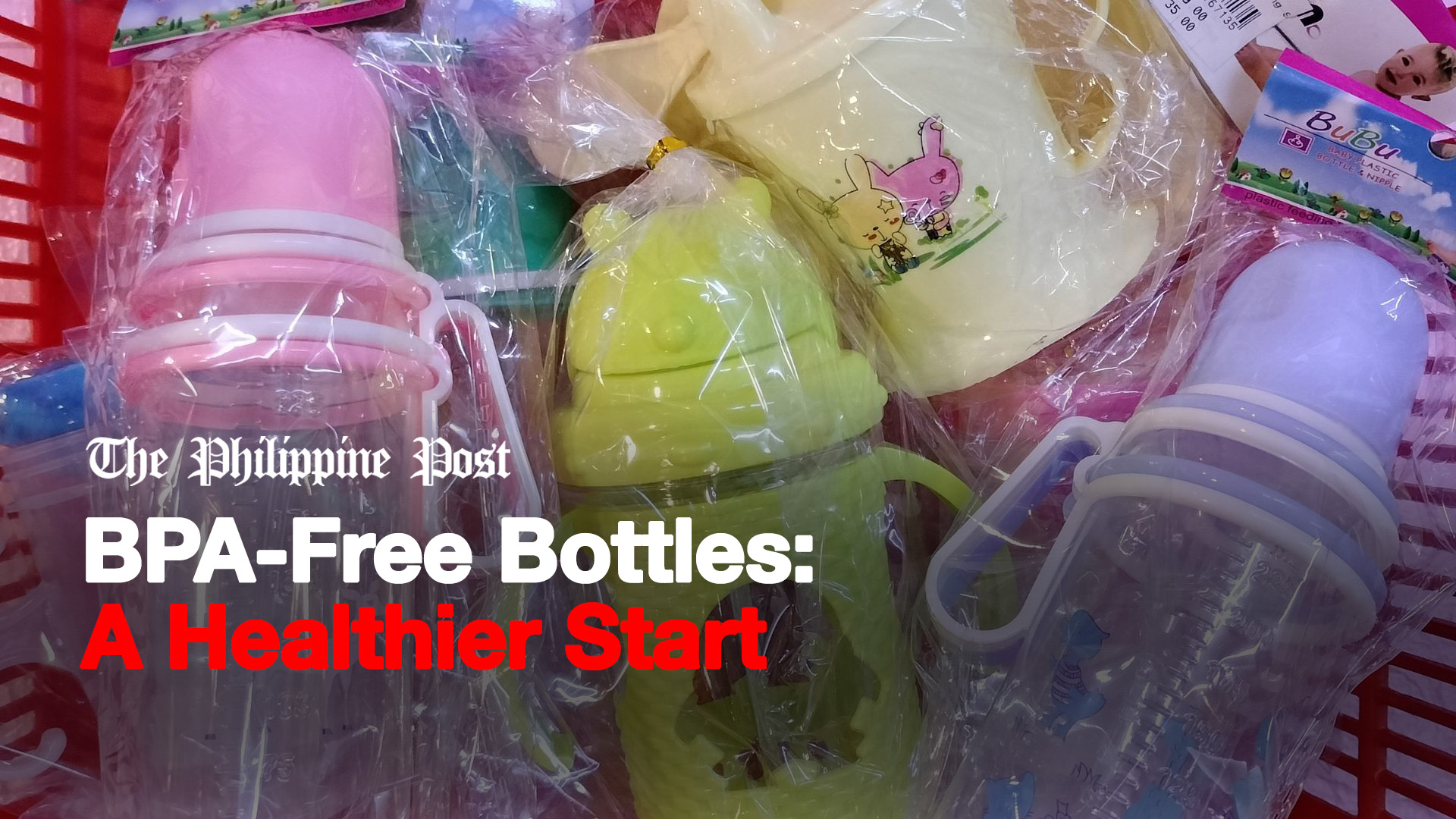To mark the fifth anniversary of a progressive policy banning bisphenol A (BPA), a known endocrine disrupting chemical (EDC), in baby feeding bottles and sippy cups, the EcoWaste Coalition again lauded the Food and Drug Administration (FDA) for its regulatory action while it sought a broader ban on BPA in all food contact materials (FCMs).

Promulgated on August 9, 2019, the FDA through Circular No. 2019-004 banned the manufacture, importation and distribution of infant feeding bottles and sippy cups containing BPA, an industrial chemical used in the manufacture of polycarbonate (PC) plastic, to reduce children’s exposure to BPA and thus protect their health.
Classified as a hazardous chemical, BPA can leach from PC plastic, especially when exposed to heat, sunlight and acidity, and seep into food or beverages in containers with BPA. BPA exposure has been linked to hormonal imbalance, allergic reactions, respiratory irritation, fertility damage, type 2 diabetes, obesity, high blood pressure, cardiovascular and behavioral problems.
To check on the availability of BPA-free baby feeding bottles and sippy cups in the market, the EcoWaste Coalition conducted a rapid market monitoring in the City of Manila. One retail store in Quiapo was found to offer a variety of products marked “BPA-free.” Another store in Tondo also offered “BPA-free” products. However, the same store offered products without any labeling information.
To assist consumers in selecting products that are safe from BPA, the EcoWaste Coalition requested the FDA to make available a master list with photos of duly authorized baby feeding bottles and sippy cups that are confirmed to be BPA-free. It also urged the FDA to remove unauthorized and unlabeled baby bottles and sippy cups in the market.
To further protect human health from adverse effects of BPA exposure, the EcoWaste Coalition also called on the FDA to take its cue from the European Union (EU) and initiate a process of banning BPA in FCMs, including plastic and coated packaging. The measure will also address the use of other bisphenols in FCMs to avoid replacing BPA with similarly harmful substances.
As reported by Food Watch, EU member states last June 12, 2024 agreed on the European Commission’s proposal to prohibit most uses of BPA and other bisphenols in FCMs. The proposal will become an EU law if the European Parliament and Council agree to it.
To recall, the EcoWaste Coalition and Arugaan (a group that seeks to protect, promote and support breastfeeding) in 2008 urged the Department of Health (DOH) to take action against the use of BPA in baby products like feeding bottles, stressing that breastfeeding is an excellent way to prevent and reduce BPA exposure among babies and children.
In 2011, the EcoWaste Coalition and the Save the Babies Coalition staged a creative protest at the DOH headquarters to press the department to ban BPA in baby feeding bottles. With the support of over 70 non-government organizations, the EcoWaste Coalition and Arugaan petitioned the DOH in 2013 and 2014 to promulgate a policy banning BPA in feeding bottles following the regulations adopted in Canada, European Union, China, and the USA.









